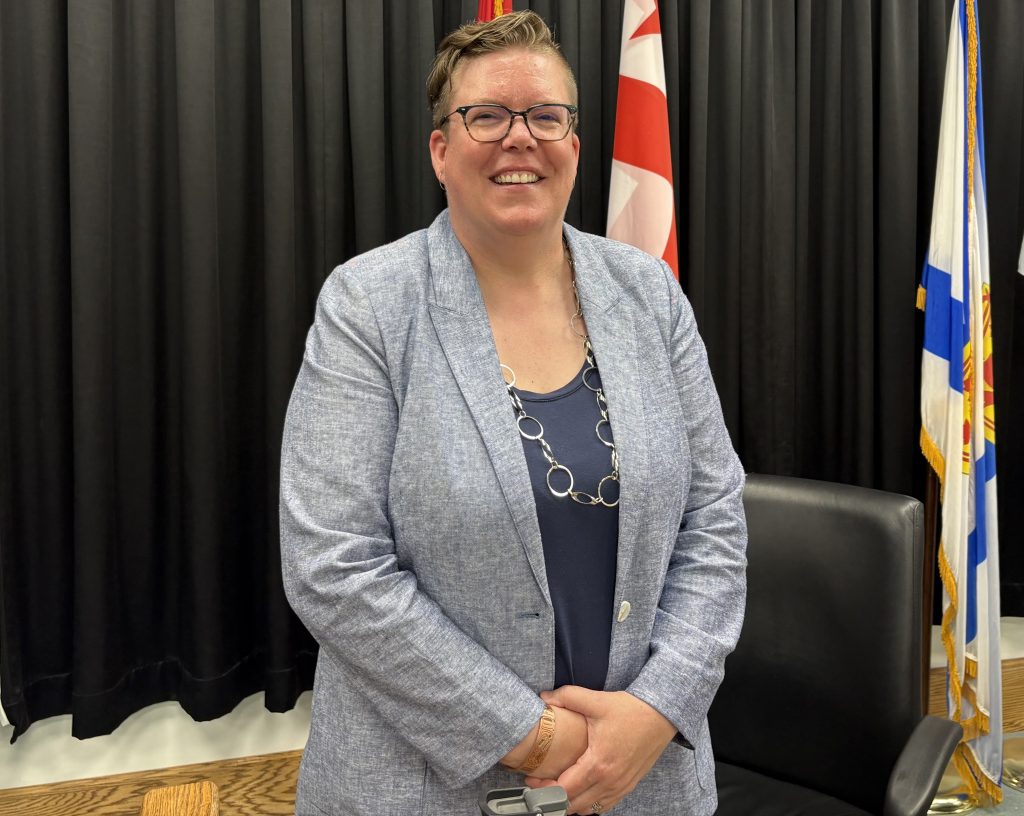CAO: Queens trying to keep people on the job after recycling depot closes

Willa Thorpe is the chief administrative officer of the Region of Queens Municipality. (Rick Conrad)
Employees facing layoff when the Region of Queens closes its recycling depot may still have a job with the municipality.
The region announced this week that it would close its materials recovery facility on Dec. 1 in response to new regulations from the Nova Scotia government.
The province is shifting the responsibility for sorting plastics and other packaging to the companies that produce it. That means municipalities won’t need their own sorting facilities anymore.
In Queens, that will affect eight unionized employees.
Willa Thorpe, the region’s chief administrative officer, told QCCR on Thursday that the municipality will try to find other jobs for those workers.
So if there’s an opportunity through current vacancies here in the organization where we have the opportunity to train folks and have them shift to a different position, we’ll do that.
“So if there’s an opportunity through current vacancies here in the organization where we have the opportunity to train folks and have them shift to a different position, we’ll do that.”
She said they’re also going to hook workers up with provincial and federal supports from Nova Scotia Works and Service Canada.
Unionized employees at the Region of Queens Waste Management Facility are represented by Local 1928 of the International Brotherhood of Electrical Workers.
The local signed a new contract with the region after a week-long strike in January.
Thorpe said the agreement requires five days’ notice of any ceasing of operation or service that will affect jobs. She said managers wanted to give the affected employees more notice, so they met with workers and their local union representative as soon as council decided to close the facility.
“We think it’s important that our employees know exactly what’s going on, that their livelihood may be impacted, and so rather than follow the (basic language) of the collective agreement, we think we hold ourselves to a higher standard. So we actually met with staff a few hours after meeting with council, so the same day as opposed to waiting, so that those employees can be confident they know exactly what’s going on.”
Some workers will continue to be employed until at least Dec. 1, depending on how long it takes to wind down the facility, Thorpe said.
She said the collective agreement does not provide for severance pay. But she said “the region is actually actively working on providing some severance to those employees.”
She didn’t have details yet on what that package might be.
Jim Sponagle, the business manager for IBEW, told QCCR earlier this week that relations between the union and the region have not improved since the strike.
Thorpe, who started as CAO in June, said that’s incorrect.
“I would disagree with that statement based on the conversations I’ve heard since the labour action, the relations have improved.”
Nothing will change for residents in how garbage and recyclables are collected, and the municipality’s solid waste facility will remain open.
A company called Circular Materials will be taking over the sorting of recyclables from the region. That’s an organization formed by large corporations like MacDonald’s, Nestle Canada and Pepsico.
Thorpe said municipalities are still working out details of the agreement with Circular Materials, so she’s not sure yet how much money the region might save.
“What the specific impacts are to municipalities we’re still determining where the dust will settle. But the idea is that the producer would bear the lion’s share of the cost.”
Thorpe said officials with the region plan to meet with affected employees again next week.
Email: rickconradqccr@gmail.com
Listen to the audio version of this story below

